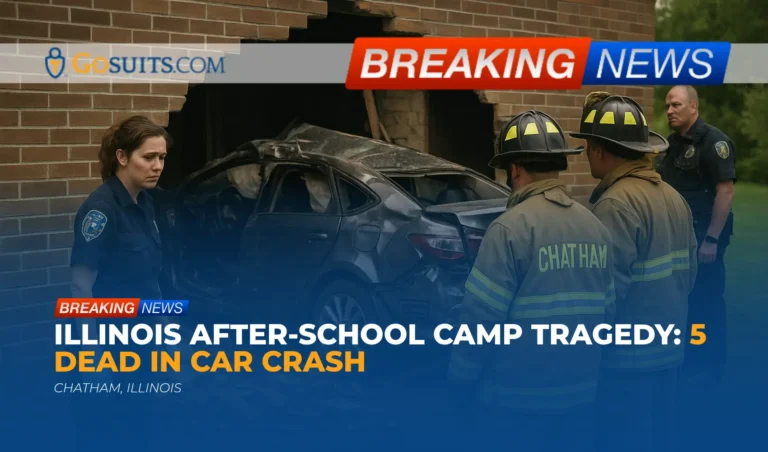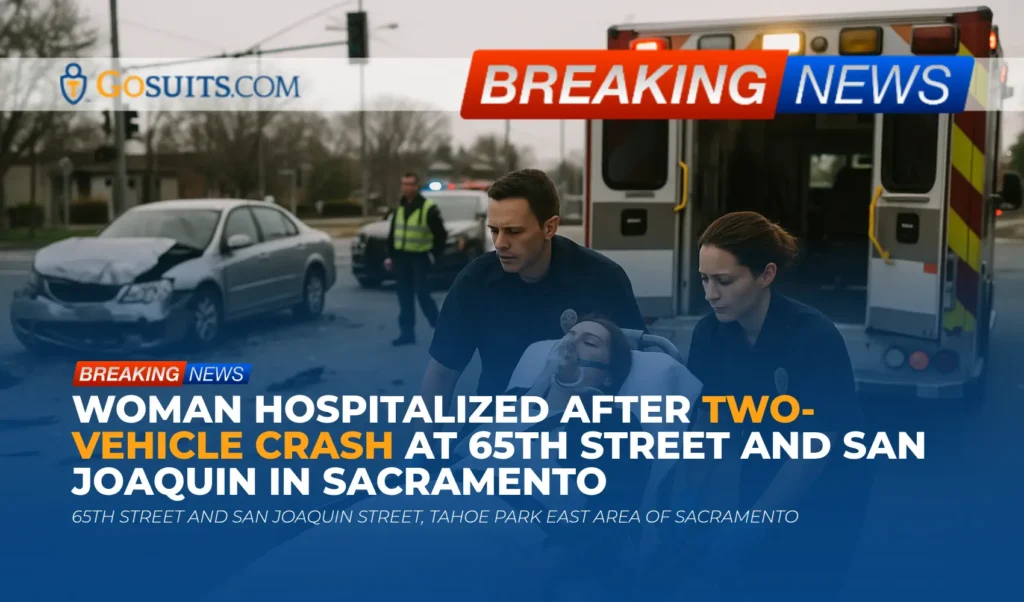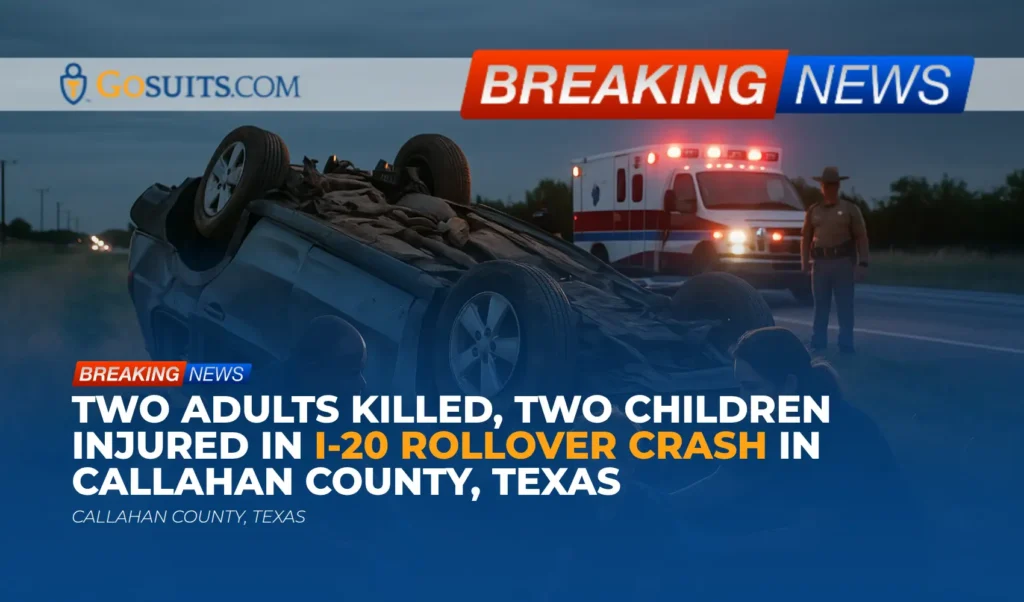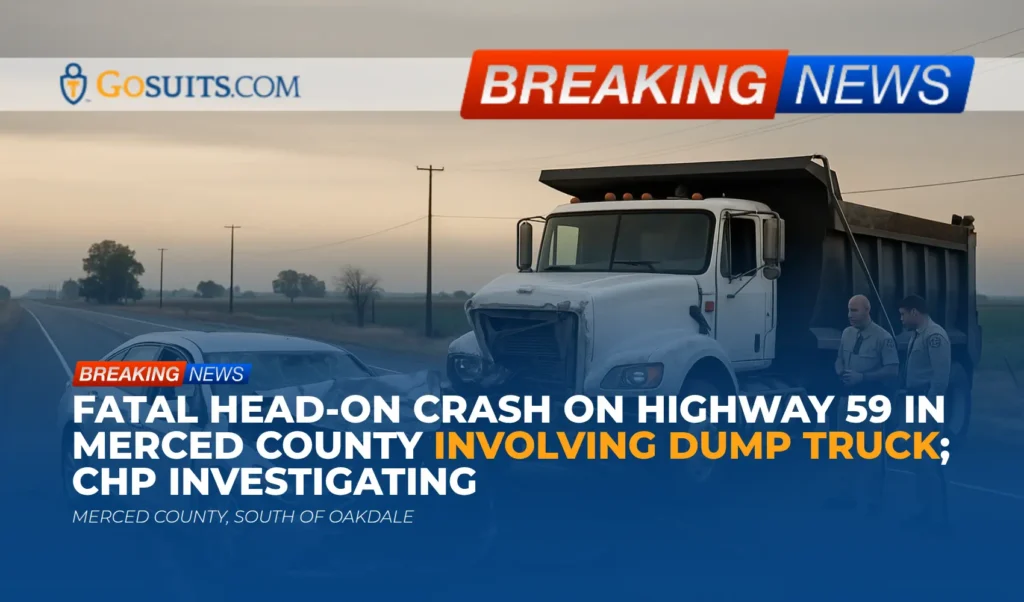A devastating incident in Chatham, Illinois, has resulted in the tragic loss of five lives, including four children, after a vehicle crashed into a building used as an after-school camp. The recent death of an 8-year-old who was injured in the crash has further compounded the grief, raising the death toll to five. This event has shocked the community and raised numerous questions about safety, liability, and the rights of the victims and their families.
The Fatal Incident
On April 28, 2025, a car crashed through a building in Chatham, Illinois, that served as an after-school camp operated by Youth Needing Other Things Outdoors, also known as Ynot Camp. The crash resulted in immediate fatalities and several injuries. Initially, four individuals lost their lives: 8-year-old Ainsley Johnson, 7-year-olds Kathryn Corely and Alma Buhnerkempe, and 18-year-old Rylee Britton. Tragically, an 8-year-old boy, Bradley Lund of Springfield, who had been critically injured in the crash, succumbed to his injuries on June 2, bringing the total loss to five lives.
The Sangamon County Coroner Jim Allmon released a statement announcing Bradley Lund’s passing, marking a somber milestone in this already heartbreaking tragedy. The incident has prompted a wave of grief and concern throughout the community and has ignited discussions about the safety measures in place at after-school programs and the legal repercussions of such accidents.
Legal Implications of the Car Crash
The aftermath of this tragic event brings forth several critical legal considerations. The primary focus of any legal action will likely center on determining liability – who is legally responsible for the accident and the resulting harm? A thorough investigation will need to assess several factors to establish fault and legal responsibility.
Negligence and Liability
The cornerstone of personal injury and wrongful death claims is often the concept of negligence. In legal terms, negligence refers to a failure to exercise the level of care that a reasonably prudent person would exercise under the same circumstances. In the context of a car accident, negligence can take many forms, including:
- Reckless Driving: Driving with a willful disregard for the safety of others, such as speeding or ignoring traffic signals.
- Distracted Driving: Operating a vehicle while engaging in activities that divert attention, such as texting, talking on a cell phone, or adjusting the vehicle’s audio or climate controls.
- Driving Under the Influence: Operating a vehicle while impaired by alcohol or drugs.
- Failure to Maintain a Vehicle: Neglecting necessary vehicle maintenance, such as brake repairs, which can lead to accidents.
If the investigation reveals that the driver of the vehicle was negligent, that driver and their insurance company could be held liable for the damages resulting from the crash.
Additional Liable Parties
In addition to the driver, other parties might also share liability, depending on the circumstances:
- The Owner of the Vehicle: If the driver was operating the vehicle with the owner’s permission, the owner could also be held liable, especially if the owner knew the driver was unsafe or had a history of reckless driving.
- The After-School Camp: If the camp’s location, safety measures, or supervision were found to be negligent and contributed to the accident, the camp could face liability. For instance, if the building lacked adequate safety barriers or was located too close to a roadway with a history of accidents, this could be a factor.
- The Manufacturer of the Vehicle or a Vehicle Component: If a defect in the vehicle or a component, such as faulty brakes, contributed to the crash, the manufacturer might be liable.

Types of Legal Claims
Given the tragic loss of life in this case, multiple types of legal claims may arise:
- Personal Injury Claims: Individuals who sustained injuries in the crash may pursue personal injury claims to seek compensation for their medical expenses, lost income, pain and suffering, and other related losses.
- Wrongful Death Claims: The families of those who died in the accident may file wrongful death claims. These claims seek to compensate the family for their losses, which can include funeral and burial expenses, lost future income of the deceased, loss of companionship, and emotional distress.
The Role of Insurance
Insurance coverage plays a significant role in personal injury and wrongful death cases arising from car accidents. The at-fault driver’s insurance policy is typically the primary source of compensation. However, in cases where the driver’s insurance coverage is insufficient to cover the full extent of the damages, other avenues of recovery may be explored, such as underinsured motorist coverage or claims against other liable parties.
Safety Considerations for After-School Programs
This incident also raises questions about the safety of after-school programs and the measures that can be taken to protect children and staff. Important safety considerations for such programs include:
- Location and Building Safety: Ensuring that facilities are located in areas with minimal traffic hazards and that buildings have adequate safety barriers to protect against vehicle impacts.
- Supervision: Maintaining appropriate staffing levels and supervision protocols to ensure the safety of children during activities and transitions.
- Emergency Preparedness: Having well-defined emergency plans and protocols in place, including procedures for evacuation and communication with parents and emergency services.
- Background Checks and Training: Conducting thorough background checks on all staff members and providing them with comprehensive training on safety procedures and emergency response.

Commentary from Gosuits Southern Illinois Personal Injury Attorney
The aftermath of this accident is undoubtedly a challenging time for the families who lost loved ones and for the community as a whole. As a personal injury law firm serving Southern Illinois, we understand the complexities and emotional toll of these situations. While no amount of money can truly compensate for the loss of a loved one, the legal system provides avenues for families to seek justice and financial recovery to help address the burdens they face.
In a case like this, a thorough and seasoned investigation is needed to determine all potential liable parties and sources of compensation. In addition to the driver of the vehicle, other entities, such as the after-school program itself, the property owner, or even the vehicle manufacturer, might bear some responsibility for the accident.
From a legal standpoint, the pursuit of a wrongful death claim can provide a measure of financial security for the victim’s family. It allows them to seek compensation for their economic losses, including the loss of the deceased’s income and support, as well as non-economic damages, such as loss of companionship and emotional suffering. It is worth exploring the full extent of legal options available to the family.
Disclaimer:** This article provides general information and should not be taken as legal advice. It is crucial to consult with a qualified attorney for advice tailored to your specific situation.






